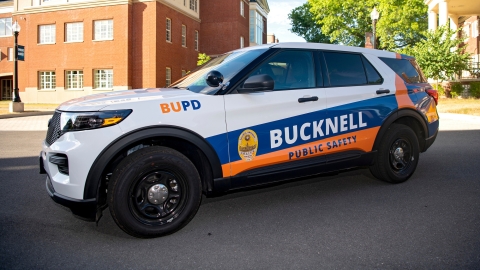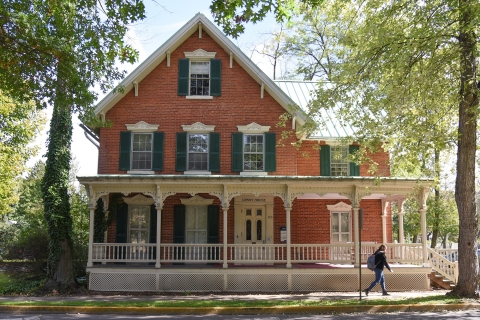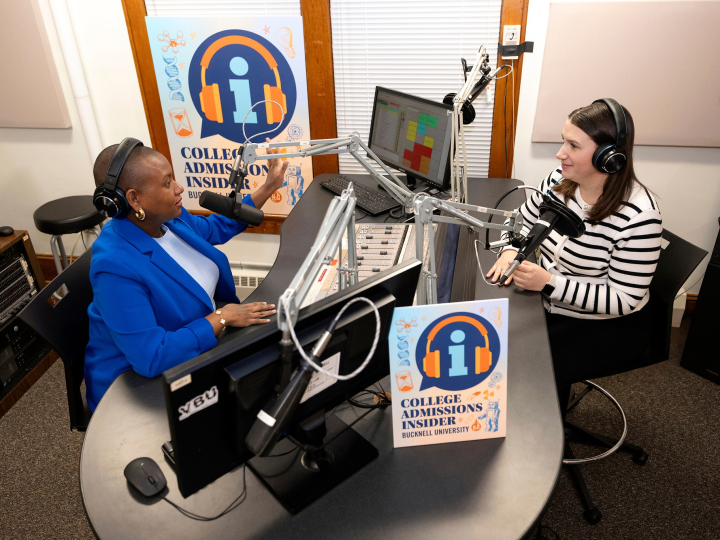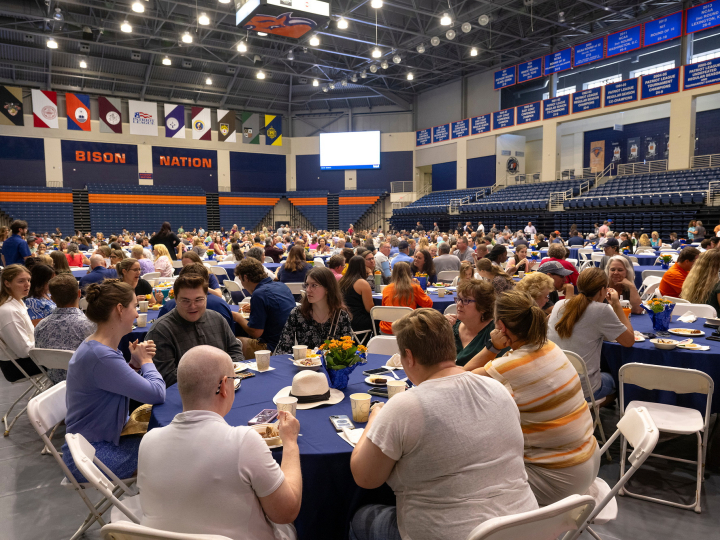
Bucknell Public Safety Earns Certification, Expands Presence and Facilities
June 23, 2025
Public Safety vehicles may now be more visible outside of campus as a result of the Act 120 police agency certification. Photo by Emily Paine, Marketing & Communications
Bucknell University Public Safety is now certified by the Commonwealth of Pennsylvania as an Act 120 police agency — a distinction that expands the department’s jurisdiction and positions Bucknell among a select group of private universities statewide.
With this certification, Bucknell’s public safety officers are now recognized as having completed the same training and adhering to the same standards as municipal police officers in Pennsylvania. It also allows them to provide support to law enforcement agencies beyond the campus borders, including the Buffalo Valley Regional Police Department (BVRPD), which serves Lewisburg and East Buffalo Township.
"Previously, other local responders could assist us, but we could not go off campus and assist them," says Chief of Public Safety Anthony Morgan. "Now that we are recognized by the state as a municipal agency, we are able to utilize our law enforcement powers outside of campus jurisdiction. We can assist any of our partner agencies."
Bucknell is just the third private university in the state to receive the certification, joining the University of Pennsylvania and Drexel University.
Stronger Partnerships, Safer Communities
The designation provides Public Safety with the authority to establish formal memorandums of understanding (MOUs) with local agencies — agreements that further strengthen relationships and enhance emergency response.
"Now, if BVRPD is tied up with another incident, we can respond within the borough and East Buffalo Township," Morgan says. "We can ensure people are safe before another agency arrives. We want to be helpful as an initial responder. There's a real benefit to the community."
Morgan emphasizes that residents should continue reporting emergencies through proper municipal channels and not call Bucknell Public Safety first. But the new certification gives Bucknell officers the flexibility to respond when needed. "We don't want to take on a high volume of off-campus reporting, but if we need to make an arrest, we can now do that just like we can on campus," he says.
The change also allows officers to be a more visible and integrated part of the surrounding community.
A New Home for Public Safety
In response to growth within the department and a desire for greater accessibility, Bucknell Public Safety is also relocating a portion of its operations to a new space that's closer to the nexus of campus and the community at-large. Community service officers, administrators and Digger — the department's popular therapy dog — will be moving to Lowry House at 110 University Ave. Dispatch and card services will remain at the existing Snake Road facility. Dispatch will begin the move to Lowry House in July, with the permanent move being completed by the end of this year.

Lowry House, the future home of Bucknell Public Safety. Photo by Gordon R. Wenzel
Public Safety will also conduct all of its in-person interviews and on-campus training at Lowry House. Two of its vehicles will be permanently stationed in the adjacent Gateway parking lot, occupying spaces formerly used by service vehicles. No faculty, staff or student parking spaces will be affected by the move.
"We've outgrown our previous facility in terms of both personnel and building capabilities," Morgan says. "Being more centralized on campus helps us be more visible and accessible. I think it's going to be a better location for members of the campus community to meet with us. If we do have to conduct interviews, we can do it in a more contemporary environment that’s more compatible with other police agencies."
Ongoing Commitment to Readiness
On Tuesday, June 18, Bucknell Public Safety led another campuswide active shooter drill in partnership with local first responders. Officers from Bloomsburg University, East Stroudsburg University and DeSales University attended the training as observers and participants, gaining valuable insight into coordinated emergency response.
"Everything we're doing — from this new certification to where we're located and how we train — is part of an ongoing effort to keep our campus and community safe," Morgan says.

